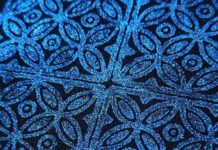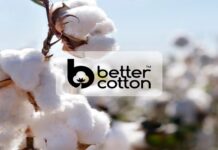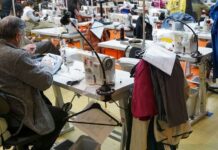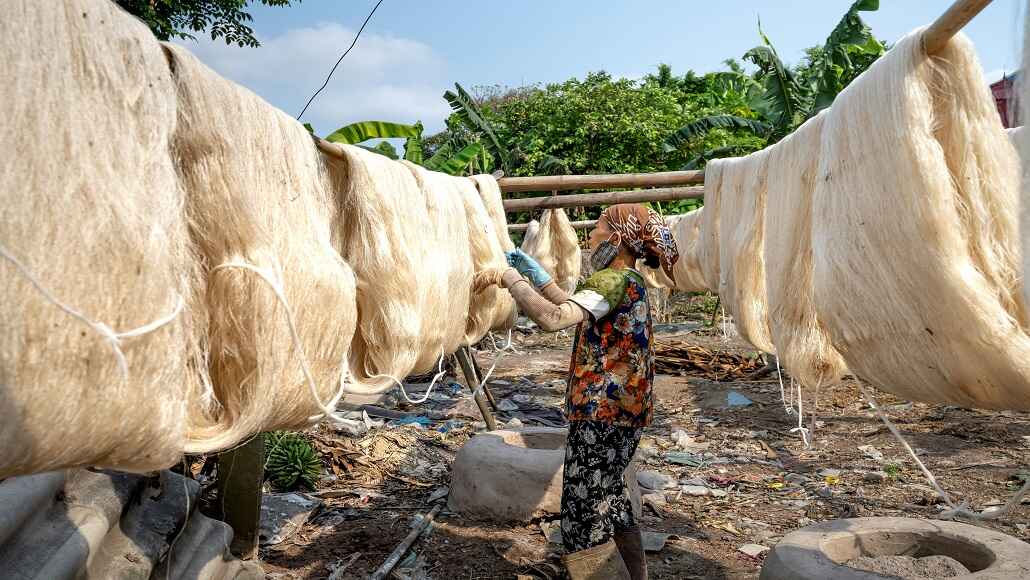Researchers in Uganda are spearheading a groundbreaking project to transform banana plant waste into sustainable products such as textiles, hair extensions, and sanitary pads. This initiative, focused on creating eco-friendly solutions, takes advantage of the increasing global demand for natural fibres. The concept is being developed under the Banatex-EA (Banana Textiles in East Africa) project at Busitema University in eastern Uganda.
The project, led by Edwin Kamalha, a textile engineering lecturer, aims to convert banana stems—often discarded as agricultural waste—into high-quality fibres that can be spun into thread. Banana fibre shares several desirable properties with cotton—our most widely used natural textile fibre,” Kamalha explained. This effort not only reduces waste but also creates an additional source of income for farmers while supporting the development of banana fibre sustainable textiles.
Transforming Banana Waste Into Opportunities
Bananas serve as a staple crop for about three-quarters of Uganda’s farmers. However, once harvested, the pseudo-stems of the plant—essential for nutrient transport—are typically left to decompose. The Banatex-EA project, launched in March 2024, addresses this issue by refining these stems into usable fibres for textiles.
The initiative has received significant backing, with £600,600 in funding from the Uganda National Council for Science and Technology under the Science Granting Councils Initiative (SGCI), alongside support from the UK’s Foreign, Commonwealth, and Development Office. The team has achieved significant breakthroughs in softening banana fibres, ensuring their suitability for spinning into thread for products like hair extensions and fabrics.
Partnerships and Product Development
To commercialize these innovations, the project collaborates with TEXFAD, a Ugandan textile producer, while also working with the Uganda National Bureau of Standards to establish product quality standards. The research team has identified Musa or Kayinja, a native banana variety, as especially ideal for fibre production due to its superior strength, shine, and higher fibre yield.
Challenges Facing Banana Fibre Adoption
Despite its promise, the project faces hurdles. Uganda’s lack of a biotechnology bill limits the ability to genetically enhance banana plants specifically for fibre production. “Without a law on genetic engineering, progress is limited,” noted Abdullah Kaggwa, project coordinator at the National Agricultural Research Laboratories. This legislative gap hinders efforts to breed banana varieties solely for industrial fibre use.
Additionally, the absence of harmonized system (HS) codes—a crucial classification for global trade—presents difficulties for banana fibre’s entry into international markets. High production costs and consumer preferences add to the complexity. For instance, while banana fibre hair extensions offer an eco-friendly alternative, many consumers still prefer the durability and reusability of human hair.
The Future of Banana Fibre
Despite these challenges, proponents are optimistic about the potential of banana fibre sustainable textiles in revolutionizing the industry. “I can say that banana fibre is the next fibre for everything,” said Kimani Muturi, executive director at TEXFAD, who has been training young people in fibre processing.
According to experts, market demand will play a critical role in scaling production. “Nothing develops without a strong market foundation. If people actively seek out these products, production will naturally accelerate,” said Andrew Kiggundu, a biotechnology consultant.
With its innovative approach to turning agricultural waste into valuable products, Uganda is carving a path toward a more sustainable and eco-conscious textile industry. This initiative not only supports environmental responsibility but also paves the way for economic opportunities for farmers and entrepreneurs alike.

































